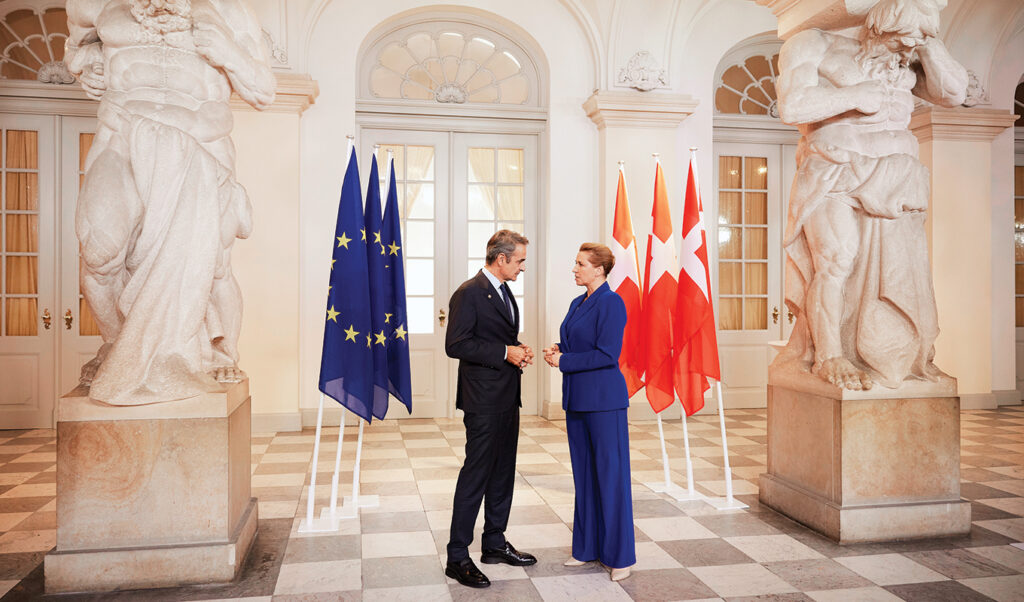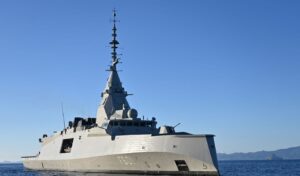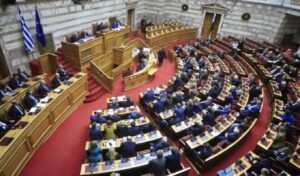A double “battle” is being waged in recent months within the European Union by Kyriakos Mitsotakis, with his sights set on approximately eighteen months from now, when Greece will assume the six-month EU presidency.
Mitsotakis’ battle for a common European defense fund
The first battle, which faces strong resistance, mainly from Northern countries, concerns direct EU funding for defense expenditures, particularly during a period when NATO member countries have agreed to increase them to 5% of GDP over time (note: 23 of the 27 EU member states also belong to NATO). The European Union’s Recovery and Resilience Fund has a strict expiration date: by August 2026, all resources available to each EU member state must have been disbursed, otherwise they will permanently lose any money they failed to absorb. Through this financing tool, the Commission raises capital by borrowing from capital markets (issuing bonds on behalf of the EU).
Subsequently, these funds are made available to member states to implement ambitious reforms and investments. Kyriakos Mitsotakis, together with his Polish counterpart Donald Tusk, have long requested the Commission to explore the possibility of setting a similar mechanism in motion that would enable joint European financing for significant defense projects concerning all of Europe – beyond the SAFE program, which provides low-interest loans.
Mr. Mitsotakis calls on Europe to turn its “radar” toward the South, where there is a permanent threat of war (casus belli) from Turkey
Support from Northern countries for new European funding
As Greek Prime Minister Kyriakos Mitsotakis revealed from Copenhagen, where he attended the informal European Union Summit, “we are closer than where we were a year ago to the idea of a European financing tool not for joint defense procurement, but for joint defense projects, which will be of European common interest, but obviously we haven’t reached that point yet, no final decisions have been made.” He also disclosed that “countries that traditionally belonged to the category of ‘frugal’ ones, like Denmark, countries like Finland, are much more open to some new financing tool,” which, as he emphasized, could be utilized for projects of European common interest, such as air defense or defense against drones.
The second battle, waged jointly – with different intensity each – by Southern European leaders, concerns the center of gravity of EU defense and security policy and corresponding armament programs. It is clear that Russia’s attack on Ukraine and the ongoing war for over two and a half years has shifted attention to the EU’s northeastern borders. Countries bordering Russia and Belarus – Finland, Estonia, Latvia, Lithuania, and Poland – feel the threat directly and sense a greater need for increased security and protection against potential attack from Moscow.
Mitsotakis’ vision for a “360-degree Europe”
However, Mr. Mitsotakis calls on the EU to turn its “radar” toward the South as well, in an indirect but clear reference to the permanent threat of war (casus belli) our country faces from Turkey, and regarding broader developments in the Eastern Mediterranean. At the meeting of the “27” in Copenhagen, Mr. Mitsotakis intervened in the discussion on strengthening European defense – which lasted four hours instead of the scheduled two – and emphasized that Europe must protect its southern borders as well as its eastern ones – a position similarly expressed by Giorgia Meloni.
“I think there is an understanding that Europe’s security cannot be limited only to the major challenge we have today at our eastern European borders, due to Russia’s attack on Ukraine,” was the Prime Minister’s public statement from the Danish capital, where he spoke of the “concept of 360-degree European security,” covering Europe’s southeastern borders as well. The Prime Minister expressed confidence that “whatever joint European defense plan is launched – and Greece has fought for such a plan to become reality – will obviously include all of Europe’s external borders, including our homeland.” Interest now focuses on the regular EU Summit, to be held on October 23-24 in Brussels.
Published in Parapolitika




